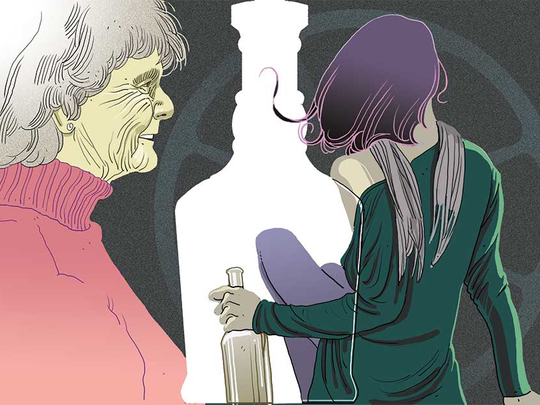
If there is a conclusion to be drawn from the last year, it might be that the capacity to listen is the most persistently undervalued human gift. John Burnside’s thought-provoking new novel is a book of wintry landscapes, family secrets and alcoholism, but it’s also a paean to the art of listening well that is especially welcome after the last 12 months of stridency.
The opening finds narrator and protagonist Kate Lambert, a young film student, drifting through her life in amid western college town. Estranged since childhood from her mother, recently bereaved by the loss of her father, Kate is drinking heavily and involved in a spiky relationship with Laurits, a domineering academic in the film studies department.
On a quest to find material for one of Laurits’s vaguely conceived projects, Kate meets an elderly woman called Jean Culver who lives alone in rustic simplicity. Jean makes Kate an unexpected offer: if Kate will stay off the booze, Jean will tell her the story of her life. It is, as Burnside reminds us, a twist on the bargain Scheherazade struck with the murderous sultan.
The stories Jean tells over tea and cake, during the weeks that follow, evoke the turbulent years of her own life and 20th-century America: a lost lover, a father and brother scarred by war, a niece swept up in the revolutionary underground of the 1960s. One of the clever aspects of the book is to turn the emphasis on to Kate as she becomes Jean’s audience. What effect, we wonder, are the words having on her? The shared stories deepen the connection between the two women and gradually begin to transfigure both lives.
Burnside, who is also an accomplished poet, writes lyrical prose with virtuoso ease. He is finely attuned to light, snowfall, the tricks of memory, the directionlessness of a bereaved and recovering alcoholic. Kate narrates the book, and there is something compulsively uncertain about her voice. Jean recalls her past vividly, whereas Kate tempers every assertion with a “maybe”, or a “perhaps”, and seems unable to recover key details of her own life: “Something had happened in grade school. I don’t remember what it was and I don’t suppose it matters now. It would have been one of those events that are automatically tragic and unbearable when you are nine and somebody you thought was kind turned out mean, or maybe you lost something — a pen, a diary with its own gold lock and key, something that could be replaced any time, only it couldn’t because it was special.”
A different novelist would feel obliged to give us every particular of this formative moment. Burnside leaves it so schematic that it resembles one of those elements in Russian folktales analysed algebraically by the formalist Vladimir Propp. This could be A5, “plundering in various forms”, or A7, “evocation of disappearance”.
Ten years ago, in his memoir A Lie About My Father, Burnside wrote about the pain and deceptions that surrounded his own upbringing. His epigraph came from St Augustine: “Where, during all these years, was my free will?” There is a kinship between the Burnside of that book and Kate in this one. At the heart of both texts is a preoccupation with and distrust of the process of storytelling. We know from A Lie About My Father how Burnside’s father habitually reordered the reality of both men’s lives with lies and myth-making. It feels as though Burnside is so wearied by the lies that give a life a false coherence that he is thumbing his nose at the conventions of story. He disdains answers for the questions that might bother a more literal-minded reader. Why does Kate’s dad lose his house? Why has Laurits borrowed money from the local tough Axel Crane? What is the real reason that Laurits has sent Kate out to interview the town’s residents? We never find out. Burnside seems allergic to the contrivances on which other writers build their epiphanies.
At the climax of the novel, Jean rescues Kate from some danger, but we are never told what it is. This is the capstone of the relationship between the two women, and yet Burnside gives us barely more than Propp’s Rs9,”rescue or salvation from being destroyed”.
“I never did find out how Jean Culver came to rescue me... I never found out, because I never asked.” Her Byzantine reasoning recalls the logic of a small child who is afraid of adult mendacity: “I didn’t ask that question because I was afraid of the answer, an answer she wouldn’t have to give me in so many words, because I would know, from whatever lie she did tell, what the real truth was.”
It’s a risky endeavour. The curious flattening out of Burnside’s world makes certain twists in the story seem arbitrary or convenient, but they are true to his aesthetic. His book is full of artists, real and fictional, who eschew convention: from Emily Dickinson and the filmmakers of the Polish New Wave, to Jean’s niece who “wasn’t interested in representing people or everyday objects”, and Laurits, who “despised plot, hated suspense, the lie of it, the clumsiness of the artifice”.
Ashland & Vine is built on the trust that evolves between talker and listener; the movement of a mind trapped in its own uncertainties and a series of tableaux which build to a strange and stirring kind of redemption.
–Guardian News & Media Ltd









